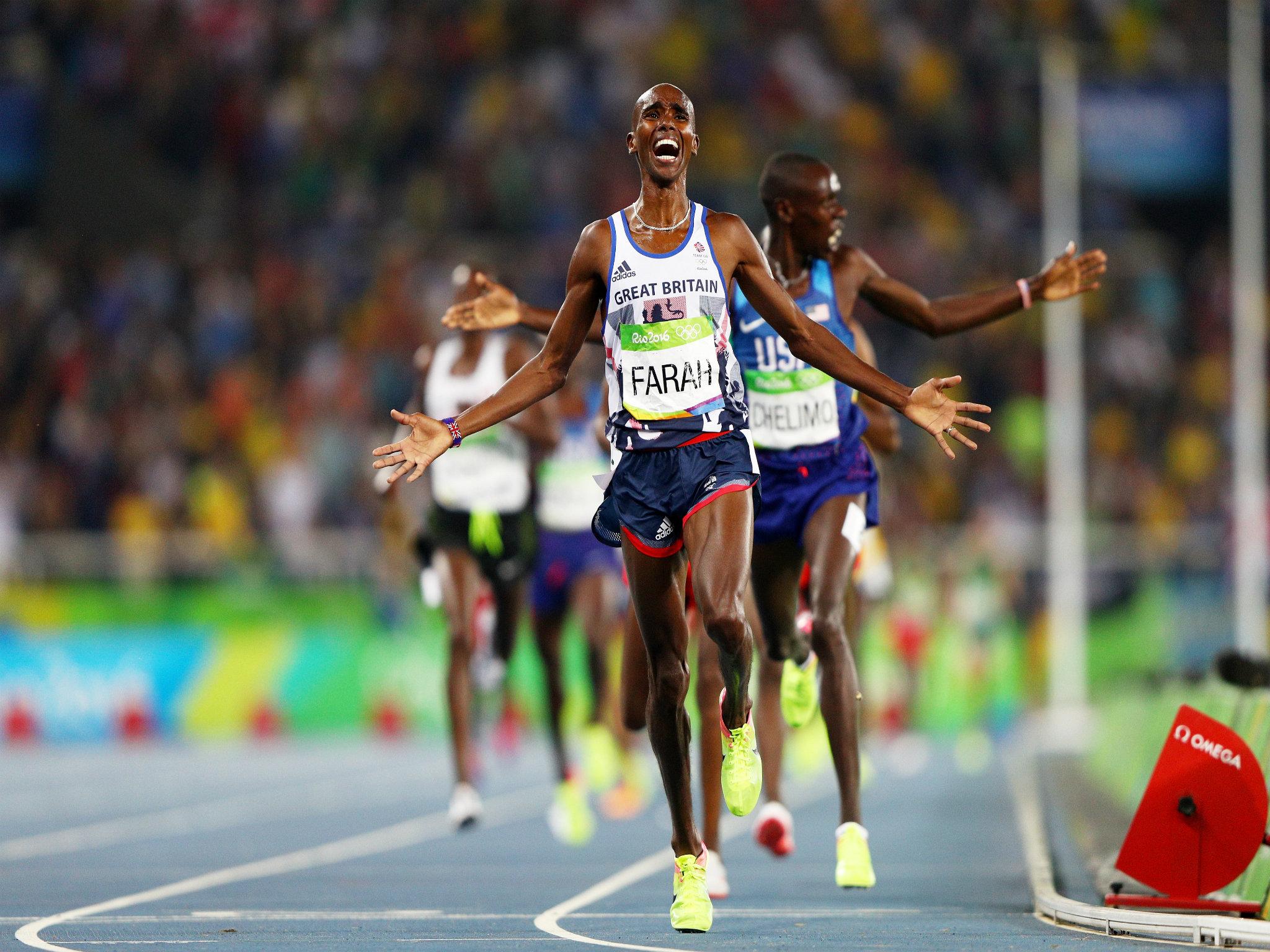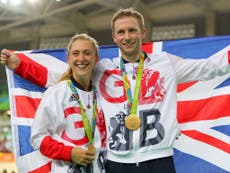Rio 2016: Mo Farah and Andy Murray deserve knighthoods for restoring British patriotism
If Sebastian Coe was thought worthy of a life peerage for winning two Olympic golds and losing at judo to William Hague, Farah should certainly have a hereditary one


A pesky thought interrupted the automatic tears that greeted his beatific grin as he crossed the line in the early hours of Sunday. How many Mo Farahs of the future have been excluded these recent years, when successive governments have caved to reactionary newspapers’ strident objections to dark skinned immigrants? How many of tomorrow’s potentially finest Britons are being denied the chance to become British in the first place?
In the sobering light of day, that question seems as fanciful as the answer is obvious. None, or almost none. What primarily makes Mo Farah who he is, after all, is that there is only one Mo Farah.
You don’t become one of two Olympian contenders to be considered your country’s greatest ever individual sportsperson by being one among many. We will not see his like again.
Yet anyone who uses Uber will regularly meet less-celebrated versions of Farah. In recent months alone, two thirtysomething Mohammeds at the wheel of a Prius have told me stories of fleeing here from African civil wars, one in Farah’s native Somalia, the other in Eritrea. They didn’t quote Farah’s glorious retort from 2012, when insolently challenged about the alleged plasticity of his citizenship. “Look mate, this is my country,” as he reproved an idiotic hack. “This is where I grew up, this is where I started life. This is my country and when I put on my Great Britain vest I'm proud. I'm very proud.”
But those Uber driver’s pride in this country, and gratitude for the refuge more routinely offered to the desperate in less callous times, was evident all the same.
In an Olympic context, I am pathologically suspicious of the patriotic pride that so effortlessly activates the lachrymals. Often, it feels ersatz. The tears come too cheaply.
Why the hell am I moved by the sight of someone I had not heard of an hour earlier excelling in dressage, rowing or any of those events you’d ordinarily need the incentive of electrodes strapped to genitals to tolerate for 30 seconds? How can the world’s naffest national anthem alchemise such base sporting metal into gold?
Crying over equestrian success for no other reason than a shared passport reminds me of the brainwashed Winston Smith at the end of Nineteen Eighty-Four, sobbing gin-scented tears of pride over an announcement from the war front which, on one level, he must recognise as worthless propaganda.
Yet with Mo Farah and his only serious rival for the title “Greatest British Sportsperson Ever”, the emotion they inspired in Rio, as in London four years ago, felt less superficial. Farah and Andy Murray so clearly represent the best of us that it would be a symptom of either moral degradation or Sjögren's syndrome to remain dry eyed at their triumphs.
It is not only that both overcame extreme childhood trauma, Murray hiding beneath his headmaster’s desk from the maniac who gunned down his Dunblane school mates when barely older than the war-displaced Farah. Or that they share a quality we associate with Dunkirk-spirit Britain – a sort of heroic cussedness in refusing to yield when under maximum pressure.
Or that they, like all Olympians, have shown a level of dedication that never fails to humble the more naturally indolent. Or that, at moments of ultimate success, they show a modesty and reticence, which contrasts so pleasingly with American bragadocio and which we also once regarded as a peculiarly British quality.
It is that, added to the above, is an understated, unhistrionic yet unmistakable love of their country which elevates our patriotic pride in something as apparently trivial as sporting success.
Their presumably imminent knighthoods will be a tiny deposit on repaying them for the pleasure they’ve lavished on their compatriots this last decade, and would be even under a less laughably degraded honours system than ours.
If Sebastian Coe was thought worthy of a life peerage for winning two Olympic golds and obediently losing at judo to William Hague, Farah should certainly have a hereditary one for winning four and ingratiating himself with nobody. Being invested as the first Duke of Hounslow And Mogadishu is the least he deserves.
Under the aegis of a race-baiting right-wing press and the feckless politicians who quail in terror of its disapproval, this country has betrayed what it once chose to regard as a noble tradition of extending friendship and tolerance towards the dispossessed. If there was something smug about that self-appraisal – if it required a huge failure of the imagination to blind oneself to the difficulties of immigrant life which the likes of Farah and his fellow Mohammeds at Uber had to overcome – there was also some truth in it.
No one should exaggerate the transformative effect on post-Brexit insularity of seeing an observant Muslim blissfully draped in the Union Jack beside a racetrack. Long after that utopian vignette has faded, the dystopian nightmare of a Donald Trump presidency will remain a genuine possibility.
Even so, the afterglow of that image will linger as a timeless rebuke to anyone venal and stupid enough to confuse true patriotism with anything as trivial as pigmentation or creed.


Join our commenting forum
Join thought-provoking conversations, follow other Independent readers and see their replies